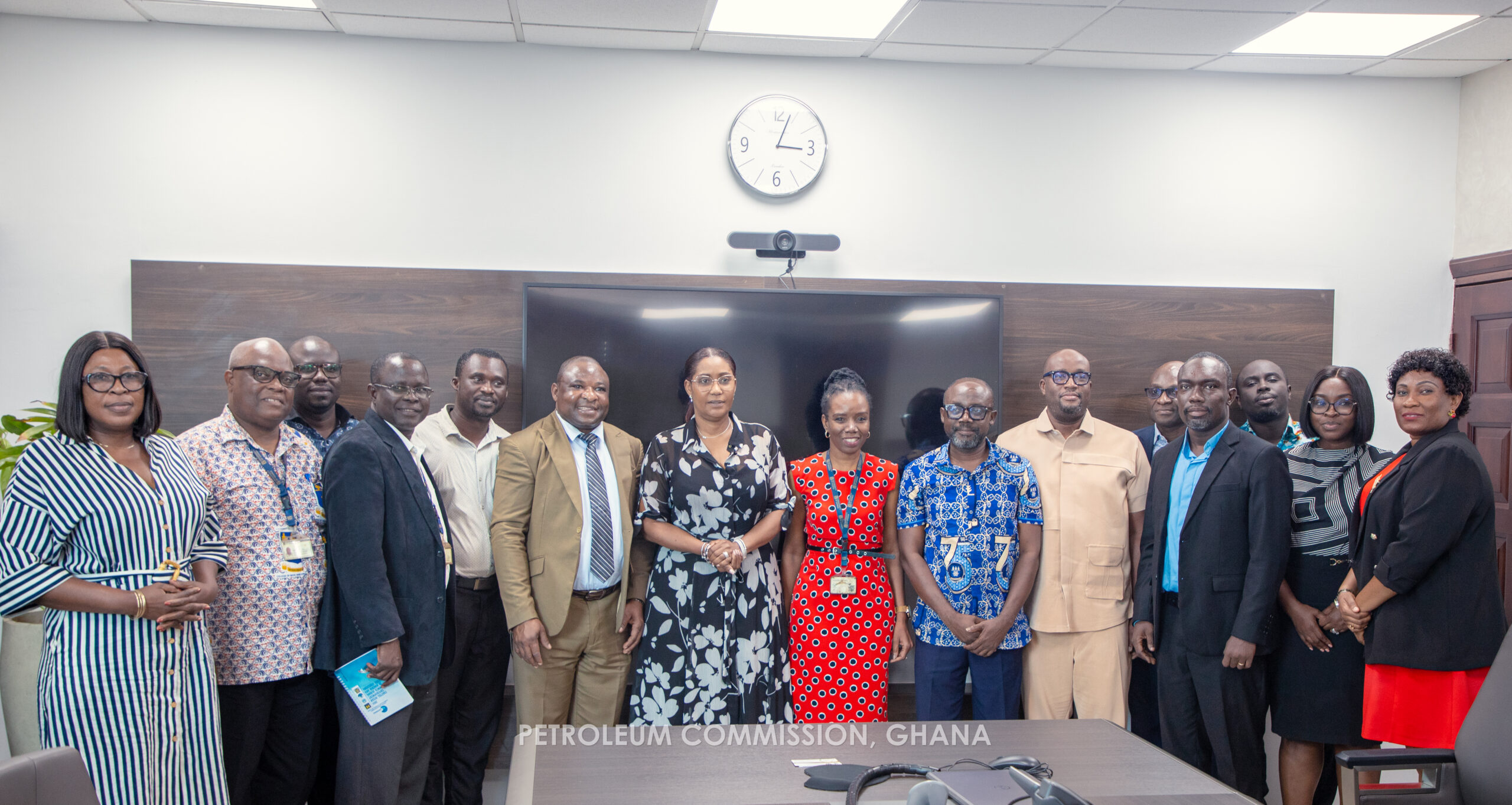The University of Ghana’s College of Basic and Applied Sciences (CBAS) have called on the Petroleum Commission to establish a new phase of collaboration.
This new phase of collaboration is aimed at leveraging academic expertise to tackle industry challenges, accelerate capacity building, and drive Ghana’s
broader energy transition agenda.
Led by the Provost of the College, Professor Sandow Mark Yidana, the delegation presented the university’s areas of expertise which included geology, physics, chemistry, engineering, computer science, biotechnology, and climate sustainability. He emphasised that the collaboration is essential for aligning academic research with national priorities.
“Our laboratories and research programs are not just for academic purposes, they are national assets and thus, by partnering with the Petroleum Commission, we can ensure that our expertise directly addresses industry challenges, nurtures the next generation of professionals, and contributes meaningfully to Ghana’s energy transition and sustainable development,” he stated.
In her remarks, the CEO of the Petroleum Commission, Ms. Emeafa Hardcastle reaffirmed the Commission’s commitment to supporting local talent and building national capacity. “Succession planning and localisation are at the heart of our mandate. We are keen to work with universities to ensure that Ghanaian students are not only trained but also empowered with the practical skills and opportunities to thrive in the oil, gas, and emerging energy industries,” she said.
According to Ms. Hardcastle, there remains a gap between academic learning and the demands of industry and as such, mentorship, industry seminars, and closer faculty–industry engagement will be essential for preparing students to transition smoothly into the job market.
The delegation from CBAS also proposed designing tailor-made professional programmes ranging from short one-week courses to long-term research collaborations. The proposed programmes include AI-driven seismic data processing, advanced material science for safer pipelines, natural gas conversion technologies, and applied chemistry for value-added energy solutions which will help meet the specific needs of the Commission and the upstream industry.
The meeting ended with both parties agreeing to formalising the collaboration through a strengthened Memorandum of Understanding (MoU). It is expected that this framework will help streamline joint research, facilitate faculty and student exchanges, and create avenues for resource-sharing, mentorship programmes, and industry-relevant innovation. An essential step toward developing a future-ready workforce capable of sustaining the upstream petroleum sector.
Petroleum Commission, University of Ghana to BuildInnovation-Driven Partnership

